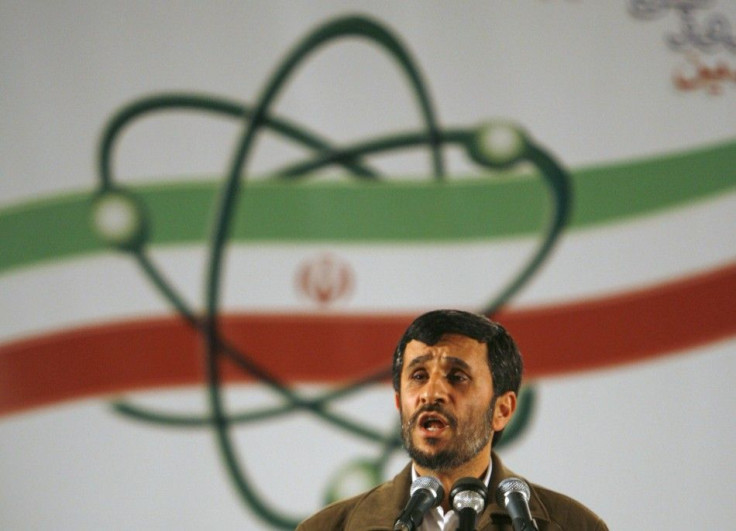Iran Nuclear Talks: Round Two In Baghdad

The second round of nuclear negotiations between Iran and six world powers will take place in Baghdad, Iraq late next month.
After meeting in Turkey on Saturday for discussions that had a completely different atmosphere from previous meetings between Iran and the so-called P5 Plus 1 group -- the United States, Britain, China, France, and Russia, plus Germany -- Tehran agreed to hold more talks, a landmark step after years of stalled negotiations around the Islamic Republic's developing nuclear program.
The choice of Baghdad, which was previously floated as a possible location for the first round, was agreed upon by all parties involved. According to the official Fars news agency, the United States suggested re-opening direct diplomatic relations between Tehran and Washington, but Iran is not ready to take that step.
The Islamic Republic's position on the issue is clear and we will not have bilateral negotiations with the US, said Alaeddin Boroujerdi, the Chairman of the Iranian parliament's National Security and Foreign Policy Commission.
The U.S. had low expectations in the days leading up to Saturday's meeting, but Iran said in Istanbul that it was ready to resolve the nuclear dispute quickly and easily, which, at the current juncture, means that Iran is ready and willing for meet for a second time.
Now, the clock is ticking. And I've been very clear to Iran and to our negotiating partners that we're not going to have these talks just drag out in a stalling process, U.S. President Barack Obama said.
However, in the weeks leading up to the May 23 meeting, Iran will be able to continue enriching uranium, which has outraged Israeli Prime Minister Benjamin Netanyahu.
My initial impression is that Iran has been given a freebie, Netanyahu said, according to Israel's YNet News. It has got five weeks to continue enrichment without any limitation, any inhibition.
Uranium enrichment is one of the key topics of the negotiation. The 'P5 Plus 1' group wants Iran to stop enriching at 20 percent purity, which is above the level needed for an atomic energy program and can, according to the Associated Press, be quickly upgraded to 90 percent weapons-grade levels. The group also wants Tehran to move its current stores of 20 percent-enriched uranium out of the country immediately.
While chief negotiator Saeed Jalili said that Iran has no intentions of stopping its enrichment activities before the Baghdad meeting, Obama criticized Netanyahu's notion that somehow we've given something away, adding that a 'freebie' would indicate that Iran has gotten something.
In fact, they've got some of the toughest sanctions that they're going to be facing coming up in just a few months if they don't take advantage of these talks. I hope they do, he said.
Iran has continued to insist that its nuclear program is only being developed for peaceful purposes, which Tehran says is its right as a signatory to the Non-Proliferation Treaty. Nonetheless, Iran sees the importance of reaching a mutual agreement with the P5 Plus 1.
We are trying to wrap up this false dossier which has been plotted for the Islamic Republic of Iran. This would benefit both Iran and the West, Iranian Foreign Minister Ali Akbar Salehi told Fars.
What we observed in the approach stated by the (P5 plus 1) members today was an approach towards talks and cooperation and we consider this to be positive, added Jalili.
© Copyright IBTimes 2024. All rights reserved.











